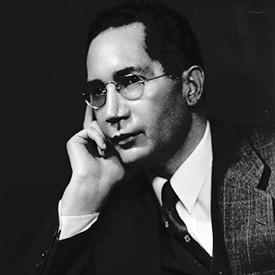I said, in drunken pride of youth and you
That mischief-making Time would never dare
Play his ill-humored tricks upon us two,
Strange and defiant lovers that we were.
I said that even Death, Highwayman Death,
Could never master lovers such as we,
That even when his clutch had throttled breath,
My hymns would float in praise, undauntedly.
I did not think such words were bravado.
Oh, I think honestly we knew no fear,
We loved each other so.
And thus, with you believing me, I made
My prophecies, rebellious, unafraid . . . .
And that was foolish, wasn’t it, my dear?
Published:
1927
Length:
Regular
Literary Movements:
Harlem Renaissance
Anthology Years:
2024
Themes:
Childhood & Coming of Age
Love & Relationships
Poetic Form
Literary Devices:
Ellipsis
a literary device that is used in narratives to omit some parts of a sentence or event, which gives the reader a chance to fill the gaps while acting or reading it out.
Personification
the attribution of human qualities to a non-human thing
Rhetorical Question
a question asked for effect, not necessarily to be answered
Sonnet
A poem with fourteen lines that traditionally uses a fixed rhyme scheme and meter.

